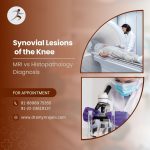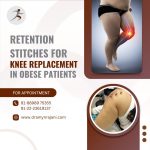Shoulder dislocation is a common orthopedic injury, particularly prevalent among the elderly population due to age-related changes in bone density and joint integrity. This condition can significantly impact daily activities and quality of life if left untreated. However, with timely intervention and appropriate treatment, elderly individuals can regain shoulder function and mobility. In this article, we will explore the understanding, signs, diagnostic procedures, treatment options, post-operative care, and the approach of renowned shoulder specialist in Mumbai, Dr. Amyn Rajani, towards managing dislocated shoulders in the elderly.
Understanding Shoulder Dislocation:
A shoulder dislocation occurs when the upper arm bone (humerus) pops out of the socket (glenoid) of the shoulder blade (scapula). This can happen due to traumatic injury, such as a fall or a sudden impact, or as a result of degenerative changes in the shoulder joint. In elderly individuals, dislocations may occur more frequently due to weakened ligaments and muscles surrounding the joint.
Signs and Symptoms of Shoulder Dislocation:
The most common signs and symptoms of a dislocated shoulder include severe pain, swelling, bruising, and an obvious deformity in the shoulder area. Patients may also experience limited range of motion, weakness, and instability in the affected shoulder. In some cases, nerve or blood vessel injury may accompany the dislocation, leading to additional symptoms such as numbness or tingling sensations.
Diagnostic Procedures for Shoulder Dislocation:
To confirm a shoulder dislocation and assess the extent of injury, orthopedic doctors typically perform a physical examination and order diagnostic tests such as X-rays, CT scans, or MRI scans. These imaging studies help visualize the position of the dislocated bone, detect associated fractures or soft tissue injuries, and guide treatment decisions.
Non-Surgical Approaches:
In many cases, non-surgical approaches are sufficient to manage shoulder dislocations, especially if the injury is a first-time occurrence and there are no significant complications. Initial treatment may involve closed reduction, a procedure where the orthopedic doctor manipulates the displaced bone back into its normal position under anesthesia. Following reduction, the shoulder is immobilized with a sling or brace to allow healing of the injured tissues. Physical therapy is often recommended to restore strength, flexibility, and stability to the shoulder joint.
Surgical Interventions:
If conservative measures fail to achieve satisfactory results or if there are recurrent dislocations or associated fractures, surgical intervention may be necessary. Surgical options for shoulder dislocation in the elderly may include arthroscopic stabilization, open reduction with internal fixation, or joint replacement surgery. The choice of procedure depends on factors such as the extent of injury, the patient's overall health, and their functional goals.
Post-Operative Care:
After surgery, patients require comprehensive post-operative care to facilitate recovery and prevent complications. This may involve a period of immobilization followed by a gradual rehabilitation program supervised by a physical therapist. Patients are instructed on proper wound care, pain management strategies, and exercises to improve shoulder strength and range of motion. It's crucial for patients to adhere to their post-operative rehabilitation regimen to optimize outcomes and minimize the risk of reinjury.
Dr. Amyn Rajani's Approach:
Dr. Amyn Rajani is a highly respected orthopedic doctor and joint replacement surgeon in Mumbai, known for his expertise in treating complex shoulder conditions, including dislocations in elderly patients. With years of experience and advanced training in shoulder surgery, Dr. Rajani employs a patient-centered approach focused on delivering personalized care tailored to each individual's unique needs and circumstances. He combines the latest surgical techniques with a compassionate bedside manner to ensure optimal outcomes and patient satisfaction.
Dr. Rajani's treatment philosophy emphasizes conservative management whenever possible, reserving surgery for cases where it offers the best chance of restoring function and improving quality of life. He believes in fostering open communication with patients, involving them in the decision-making process, and providing comprehensive support throughout their treatment journey. Dr. Rajani's dedication to excellence and his commitment to advancing the field of shoulder surgery have earned him recognition as a leading shoulder specialist in Mumbai.
Conclusion:
Shoulder dislocation is a debilitating condition that can significantly impact the lives of elderly individuals. However, with prompt diagnosis and appropriate treatment, including non-surgical and surgical interventions, patients can achieve favorable outcomes and regain function in their shoulders. Dr. Amyn Rajani's holistic approach to managing shoulder dislocations underscores the importance of individualized care, comprehensive treatment plans, and ongoing support for patients seeking to overcome this challenging orthopedic injury. By partnering with a skilled and compassionate orthopedic specialist like Dr. Rajani, elderly patients can look forward to a smoother recovery and a return to an active, pain-free lifestyle.
To schedule an appointment, call on Clinic Number: 91-88989 75355 / 91-22-23619137



